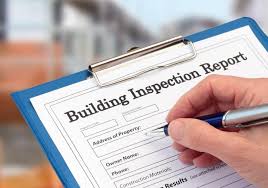- الحصول على الرابط
- X
- بريد إلكتروني
- التطبيقات الأخرى
- الحصول على الرابط
- X
- بريد إلكتروني
- التطبيقات الأخرى
Third-party inspection for construction materials is a crucial aspect of ensuring the quality and reliability of materials used in construction projects. It provides an independent and unbiased evaluation of materials, helping to mitigate the risk third party inspection companies of faulty or substandard materials being used in construction. In this article, we will explore the importance of third-party inspection in ensuring the quality of construction materials and its impact on the overall success of construction projects.
Ensuring quality in construction materials is crucial for the safety and longevity of infrastructure. Third-party inspection plays a vital role in this process, as it provides an unbiased evaluation of materials and ensures that they meet industry standards and regulations. Third-party inspectors are independent entities that are not affiliated with the manufacturer or the buyer, which eliminates potential conflicts of interest. They possess the expertise to thoroughly assess the quality of construction materials and identify any defects or discrepancies that may compromise the integrity of the final structure. By conducting inspections throughout the production and distribution process, third-party inspectors help to identify and rectify any issues before the materials are incorporated into the construction project. This helps to minimize the risk of structural failures, project delays, and costly rework. Moreover, third-party inspection can provide peace of mind to all stakeholders involved in the construction process, including developers, contractors, and end-users. It demonstrates a commitment to quality and compliance, which can enhance the reputation of the project and the parties involved. Overall, third-party inspection for construction materials is instrumental in upholding quality standards, mitigating risk, and ensuring the long-term safety and performance of infrastructure. It is a valuable investment that can third party inspection help to avoid costly repercussions and contribute to the overall success of construction projects.
Ensuring the quality of construction materials is crucial for the safety and durability of built structures. Third-party inspection is instrumental in this process as it provides an impartial evaluation of materials, ensuring they meet industry standards and regulatory requirements. These independent inspectors bring specialized knowledge to thoroughly assess materials, identifying any defects or inconsistencies that could compromise the integrity of the final construction. By conducting inspections at various stages of the production and distribution process, third-party inspectors aid in addressing issues before materials are incorporated into construction projects, thereby minimizing the risk of structural failures, project delays, and costly rework. Additionally, third-party inspection adds credibility to the project, instilling confidence in stakeholders by demonstrating a commitment to quality and compliance. Ultimately, third-party inspection for construction materials is a prudent investment third party inspection agency that can help avoid expensive repercussions and enhance the overall success of construction projects.
The Importance of Third-Party Inspection in Construction Materials

Third-party inspection in construction materials is crucial for ensuring the quality, safety, and compliance of the materials used in a construction project. These inspections are conducted by independent, accredited organizations that are not affiliated with the manufacturer or the contractor, providing an unbiased assessment of the materials. By engaging third-party inspection services, construction companies can mitigate the risk of using substandard or non-compliant materials, which could result in construction defects, safety hazards, and potential legal liabilities. Additionally, third-party inspections help to uphold the integrity of the construction industry and maintain public trust in the quality and safety of buildings and infrastructure. Third-party inspection also serves as a valuable quality control measure, helping to identify any deviations from the specified standards or requirements early in the construction process. This can prevent costly rework and delays, ultimately saving time and money for all parties involved in the project. Overall, the importance of third-party inspection in construction materials cannot be overstated. It provides an objective evaluation of materials, helps to uphold industry standards, and ultimately contributes to the overall success and reliability of construction projects.
Benefits of Implementing Third-Party Inspection for Construction Projects

Implementing third-party inspection for construction projects has several key benefits. First and foremost, it helps ensure that the construction meets all regulatory requirements and industry standards. This can help prevent costly rework and delays down the line. Additionally, third-party inspection can provide an unbiased assessment of the construction quality, which can be particularly important when there are disputes or claims between the various parties involved in the project. This can help ensure that all parties are held accountable for their work and can help prevent any potential conflicts. Furthermore, third-party inspection can provide a fresh set of eyes on the project, which can help identify any potential issues or areas for improvement that may have been overlooked by the individuals directly involved in the construction. This can ultimately help improve the overall quality of the project and reduce the likelihood of future problems. Overall, implementing third-party inspection for construction projects can provide peace of mind for all parties involved, help ensure compliance with regulations and standards, and ultimately lead to a higher quality end result.
Common Types of Third-Party Inspection for Construction Materials

1. Visual Inspection: This involves a thorough visual examination of construction materials to check for defects, damage, or discrepancies in appearance. 2. Dimensional Inspection: This type of inspection is focused on verifying the dimensions and geometry of construction materials to ensure they meet the specified requirements and standards. 3. Mechanical Testing: Mechanical testing is conducted to assess the physical properties and performance of construction materials, such as tensile strength, hardness, and impact resistance. 4. Chemical Analysis: Chemical analysis is often performed to determine the composition and purity of construction materials, especially in the case of metals, alloys, and composite materials. 5. Non-Destructive Testing (NDT): NDT techniques, such as ultrasonic testing, magnetic particle testing, and dye penetrant testing, are used to inspect construction materials without causing damage, allowing for the detection of internal flaws or defects. 6. Sampling and Laboratory Testing: This involves collecting representative samples of construction materials for testing in a laboratory to assess their quality, performance, and compliance with standards. 7. Documentation Review: Inspectors may also review documentation, such as material certificates, test reports, and quality control records, to ensure that construction materials have been produced and handled in accordance with specifications and regulations.
How to Choose the Right Third-Party Inspection Company for Construction

When choosing the right third-party inspection company for construction, it's important to consider several factors. First, look for a company with experience in construction inspections and a good reputation in the industry. You'll also want to ensure that the company has the necessary certifications and qualifications to perform the specific types of inspections you require. Additionally, consider the company's track record for thorough and accurate reporting, as well as their ability to meet your project's timelines and budgets. Finally, seek out references and testimonials from past clients to get a sense of the company's overall quality and reliability.
Ensuring Quality with Third-Party Inspection in Construction Materials
Third-party inspection in construction materials is important to ensure the quality and reliability of the materials used in a construction project. This type of inspection involves hiring an independent inspection agency to examine and test the materials, such as concrete, steel, and wood, to ensure they meet the required standards and specifications. Third-party inspection helps to identify any potential issues or defects in the materials before they are used in the construction process, which can help to prevent costly rework or repairs later on. It also provides an unbiased assessment of the materials, as the inspection agency is not affiliated with the supplier or the construction company. The inspection process typically involves visual inspections, measurements, and testing of samples in a laboratory to verify the quality, strength, and durability of the materials. The inspection agency will then provide a detailed report of their findings, which can be used to make informed decisions about the suitability of the materials for the construction project. Overall, third-party inspection plays a crucial role in ensuring the overall quality and integrity of construction materials, helping to minimize the risk of structural failures and ensuring the safety and longevity of the completed building or infrastructure.
The Role of Third-Party Inspection in Construction Material Compliance
Third-party inspection in construction material compliance plays a crucial role in ensuring that materials used in construction projects meet relevant standards and regulations. These inspections are conducted by independent inspection agencies or organizations that have no financial interest in the outcome of the inspection. Their main objective is to provide an impartial assessment of the quality and compliance of construction materials. Third-party inspection helps in identifying any non-conformities or discrepancies in the materials being used, and ensures that they adhere to specified standards and specifications. This helps in reducing the risk of using substandard or non-compliant materials in construction, which could lead to safety hazards and structural failures. These inspections also provide assurance to clients, contractors, and regulatory authorities that the construction materials meet the required quality and compliance standards. They help in improving transparency and accountability in the construction process, and minimize the potential for conflicts of interest. Overall, the role of third-party inspection in construction material compliance is essential in maintaining the integrity and safety of construction projects, and in ensuring that the materials used meet the necessary standards and regulations.
Maximizing Efficiency Through Third-Party Inspection in Construction
third party inspection companies
Maximizing efficiency through third-party inspection in construction involves outsourcing inspection tasks to specialized firms or individuals. This allows construction companies to focus on their core activities while ensuring that all necessary quality control and compliance measures are met. Third-party inspection services can cover a wide range of areas including structural integrity, building code compliance, material testing, and safety assessments. By entrusting these tasks to experienced professionals, construction companies can streamline their operations and avoid potential conflicts of interest that may arise from conducting inspections in-house. Furthermore, third-party inspectors are often well-versed in industry standards and best practices, bringing a high level of expertise to the table. This can help identify potential issues early on, preventing costly delays and rework down the line. Overall, embracing third-party inspection can result in a more efficient construction process, improved quality control, and ultimately, a reduction in overall project costs.
Understanding the Standards for Third-Party Inspection in Construction Materials
The standards for third-party inspection in construction materials are established to ensure that the materials used in construction projects meet the required quality and safety standards. These standards outline the criteria and procedures that third-party inspectors must adhere to when conducting inspections of construction materials. This includes guidelines for sample collection, testing methods, documentation, and reporting. Adhering to these standards helps to provide assurance that the materials being used in construction projects are of the highest quality and comply with regulatory requirements. Compliance with these standards is essential for maintaining the integrity and safety of construction projects.
In conclusion, it is vital to prioritize the quality of construction materials to ensure the safety and durability of any building project. Third-party inspection for construction materials plays a crucial role in this process, offering impartial assessment and verification of materials to guarantee they meet industry standards and regulations. By investing in third-party inspection, construction professionals can mitigate risks, facilitate compliance, and ultimately deliver high-quality and reliable structures.
Repair Companies
Third-party inspection for construction tools
Third-party inspection for machinery parts
- الحصول على الرابط
- X
- بريد إلكتروني
- التطبيقات الأخرى